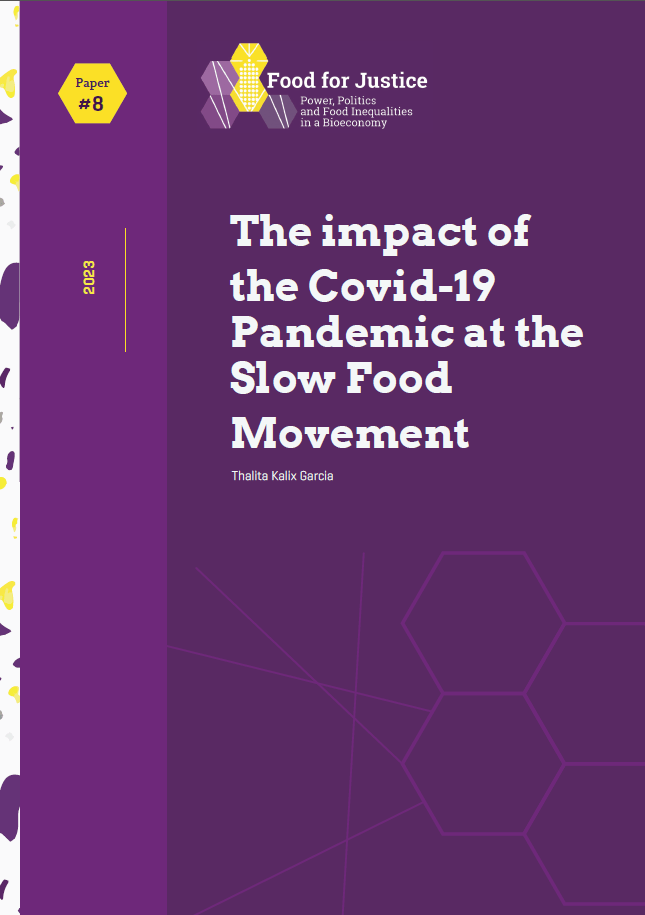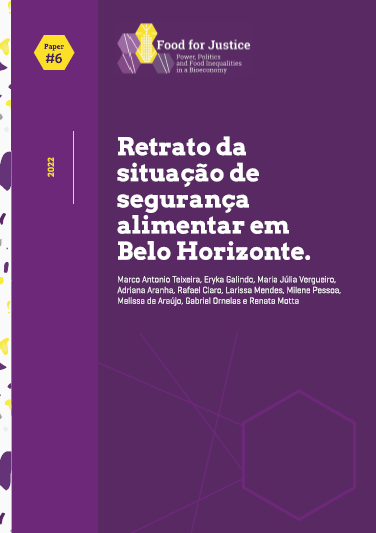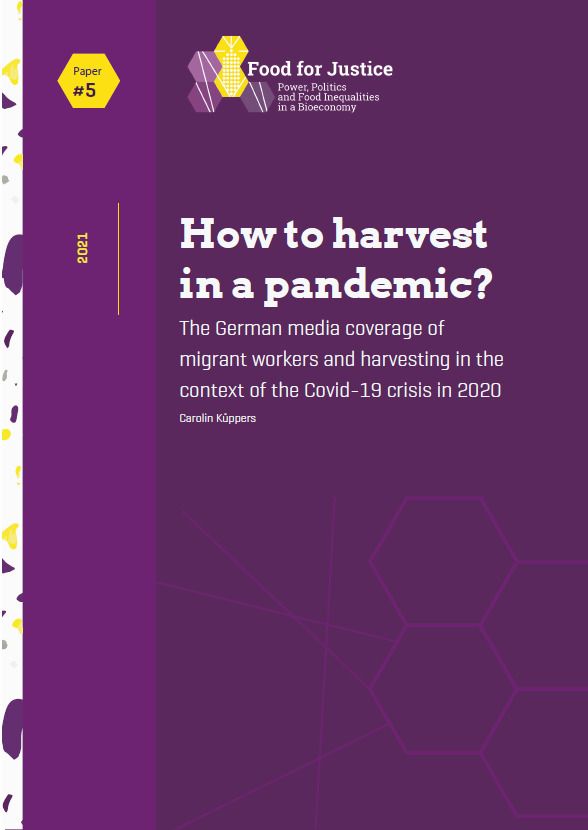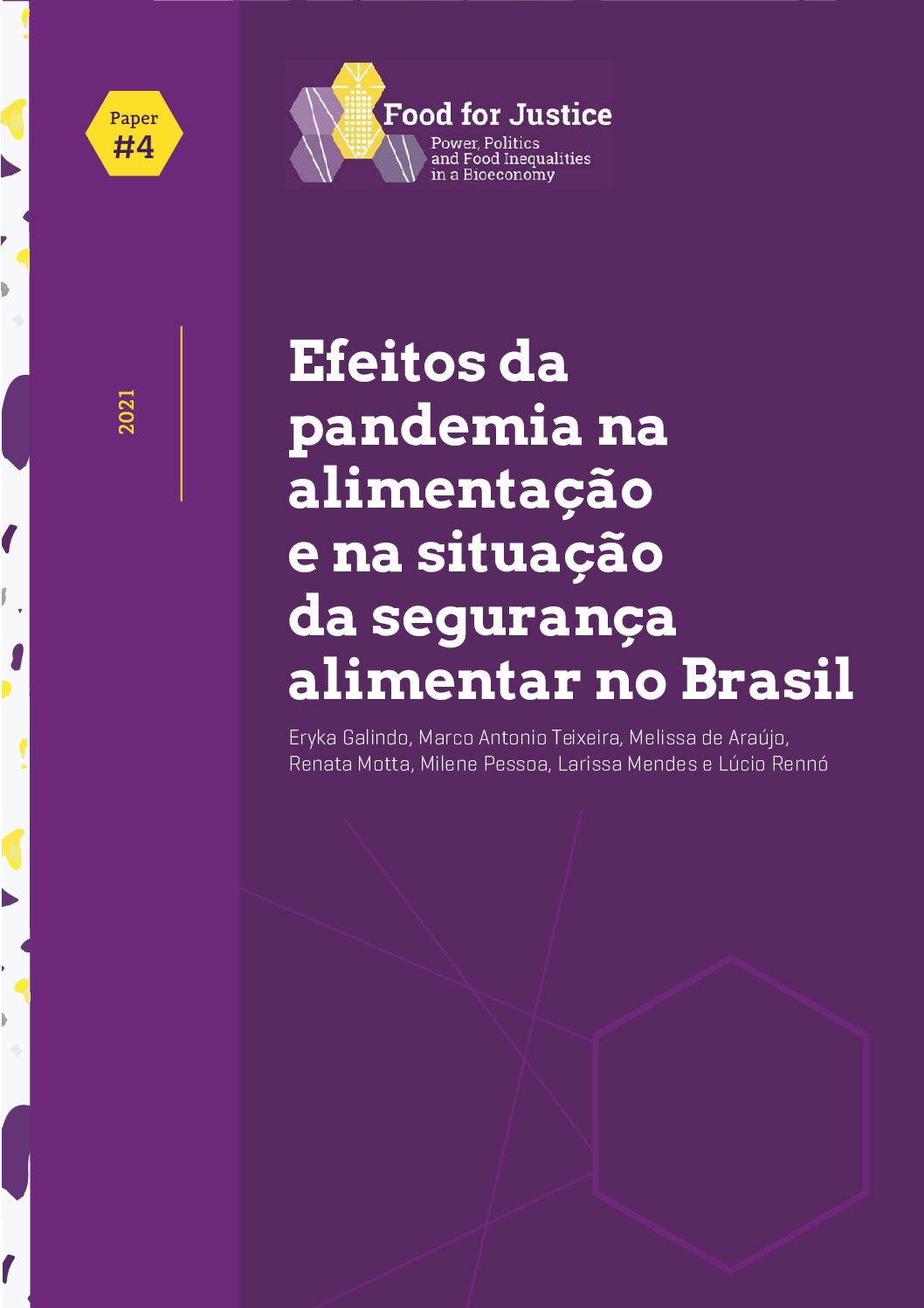Working Paper 9 • 2024
Políticas de Segurança Alimentar e Nutricional nos Municípios Brasileiros
Abstract
This publication records the central ideas that emerged from the self-organized activity “Food and nutrition security policy at municipal level: context and opportunities”, held virtually at the 5th National Research Meeting on Food and Nutrition Sovereignty and Security (V ENPSSAN, 2022). Guaranteeing the Human Right to Adequate Food and the scope of public policies on Food and Nutrition Security (FNS) necessarily involve recognizing the central role of municipalities in implementing actions and building local dialogues, in an integrated manner with other public authorities and government areas, as proposed by the National FNS System. In the debate, reflections emerged on monitoring population food security/insecurity, definitions and concepts associated with public FNS policies, reports of municipal experiences, as well as opportunities for resuming and strengthening FNS policies in municipalities. The debate gave rise to reflections on monitoring population food security/insecurity, definitions and concepts associated with public FNS policies, reports of municipal experiences, as well as highlighting opportunities for resuming and strengthening FNS policies in municipalities. Eight potential approaches were identified to contribute to the field of research on FNS public policies in the municipal context: participatory governance; territorial diversity and the rural-urban relationship; institutionalization; civil society action; intersectonality; scales and different spatialities; interface with the socio-ecological agenda; and state capacities. Finally, it also identified issues and challenges for the effectiveness of municipal FNS policies. This document brings collective contributions to the different windows of opportunity currently facing the various social actors involved in municipal FNS policies. In this regard, we highlight the resumption of the public agenda guided and strengthened by the federal government (from 2023), the resumption of the national CONSEA and the occurrence of municipal elections in 2024.
Working Paper 8 • 2023
The impact of the Covid-19 Pandemic at the Slow Food Movement
Abstract
The corona virus outburst was declared a global pandemic in March 2020, making many countries to go on lockdown in order to try to restrain it and avoid or diminish the overwhelming of national health systems. As work and studies went online and social distancing became a safety rule, social movements also had to adapt themselves. Furthermore, food movements gained more relevance as one of the first concerns was to keep the food production and distribution worldwide despite the shutdowns. This paper aims to analyse the impacts of the Covid-19 pandemic in the Slow Food movement, how it changed the movement organization, agenda, and actions. It is based on empirical research in two countries: Brazil and Germany and it looks at three moments of the pandemic, from its first impact in 2020 till the adaptations and continuities in 2021 and 2022. This work relies on an on-site and virtual ethnography and is part of a broader investigation on the movement on both countries.
You can find the publication here.
Working Paper 7 • 2023
Food and urban politics in Belo Horizonte: agroecology, activist coalitions,and bottom-up technologies of sustainable urbanization
Abstract
In this Working Paper, I aim to contribute to the emerging debate between food and urban studies by bringing to the fore the socio-political dimension of the food system and its urban context. Guided by the general research questions of the project “Food for Justice: Power, Politics, and Food Inequalities in a Bioeconomy”1, this research is embedded in a case study on food politics in the city of Belo Horizonte. It deals with the social innovations of the agroecological and housing movements of the city and the dwellers of Izidora, inhabitants of a so-called “informal settlement”, whose engagement in the fight for housing and the right to the city has yielded remarkable achievements in building activist coalitions and re-signifying marginal urban spaces. Drawing on digital-ethnographic fieldwork I conducted between January and December 2020, I analyze the context, use, and reach of these social innovations as an instrument to transform urban development in the peripheries of Belo Horizonte.
You can find the publication here.
Working Paper 6 • 2022
Retrato da Segurança Alimentar e Nutricional em Belo Horizonte: Portrait of food and nutrition security in Belo Horizonte
Abstract
This publication analyses the food insecurity situation in the city of Belo Horizonte, the capital of the Brazilian state Minas Gerais. Belo Horizonte is publicly recognized for its history of implementing public policies on food security. The data analyzed was collected through a public opinion survey representative of the population of Belo Horizonte, with data collection carried out in areas with high pedestrian flow distributed in 113 neighborhoods from 7 to 27 April 2022. The Research Group Food for Justice: Power, Politics and Food Inequalities in the Bioeconomy, based at the Freie Universität Berlin (Germany), coordinated this data collection in cooperation with researchers from the Universidade Federal de Minas Gerais (UFMG), the Forum of Researchers on Food Sovereignty and Food Security of Belo Horizonte and the Undersecretariat of Food Security and Nutrition of the Mayor of Belo Horizonte, Fome Zero Institute (IFZ) and Center for the Study of Metropolis of the Universidade de São Paulo (CEM/USP). The results show that 55.7% of households experienced food insecurity, whether mild (30.1%), moderate (12.4%), or severe (13.2%). The findings also point out that some domiciles were more exposed to food insecurity than others, according to household features. For example, food insecurity was significantly higher in households headed by a single female person (63.3%), headed by someone who was racialized as brown (57.3%) or black (68.4%), or when the household had in its composition children up to 4 years old (66.9%) or children and teenagers from 5 to 17 years old (64.7%). The frequency of food insecurity is also significant in households whose per capita income is equivalent to up to 25% of the minimum wage (R$303.00, three hundred and three reais) (86.9%). It is possible to conclude that food insecurity is reproduced from the interweaving of inequalities, which requires a broad set of actions to overcome such asymmetries. It includes a state action that articulates different levels and spheres of power, with popular participation, and an intersectoral approach, which integrates and ensures rights and policies to the most vulnerable population.
Working Paper 5 • 2021
How to harvest in a pandemic? The German media coverage of migrant workers and harvesting in the context of the Covid-19 crisis in 2020
Abstract
The COVID-19 pandemic has widely been discussed as a crisis that impacts daily life on a global scale, including food security, global supply chains, consumer behaviour and nutrition. In this crisis, providing food became an even more essential service, agricultural work became an essential activity, and with this, farm workers became so-called essential workers. In Germany, this topic was broadly taken up by local and national newspapers. Due to immense media interest during the first lockdown, the working conditions in the food sector and especially the marginalized status of farmworkers were rendered visible to a broader public. This paper analyses the discourses and how food production in times of the pandemic affects pre-existing workers‘ inequalities and lack of workers’ rights, revealing migrant workers as one of the most vulnerable groups in the German food system. It concludes by demonstrating that the mechanisms of Covid-19, which have been exacerbating existing inequalities in the food sector during the pandemic, are part of a structural socio-economic and socio-political crisis that must be regarded in the context of global capitalism and intersectional inequalities.
Working Paper 4 • 2022
Efeitos da pandemia na alimentação e na situação da segurança alimentar no Brasil
Abstract
This working paper analyzes the effects of the Covid-19 pandemic on food security and food consumption in Brazil. The data was collected between November and December 2020 through a public opinion survey conducted by telephone with a representative sample of the Brazilian population. This data collection was coordinated by the Research Group Food for Justice: Power, Politics and Food Inequalities in a Bioeconomy, of the Freie Universität Berlin (Germany), jointly with researchers from the Universidade Federal de Minas Gerais (UFMG) and the Universidade de Brasília (UnB). The results show that 59% of the inquired households are in a situation of food insecurity during the pandemic, and that a significant part of the respondents reduced the consumption of food items important for their regular diets; 44% reduced meat and 41% reduced fruit consumption. Thus, the data collected confirms the previous findings by the National Research for Sample of Domicile (Pesquisa Nacional por Amostra de Domicílio) that indicated an increase in food insecurity in Brazil in the years 2017 and 2018 compared to the previous standards from 2013. In conclusion, the socioeconomic instabilities caused by the political and economic crises in recent years have worsened with the Covid-19 pandemic, reinforcing food inequalities for a large portion of the Brazilian population, especially regarding access to healthy food on a regular basis in a sufficient quantity and quality.










